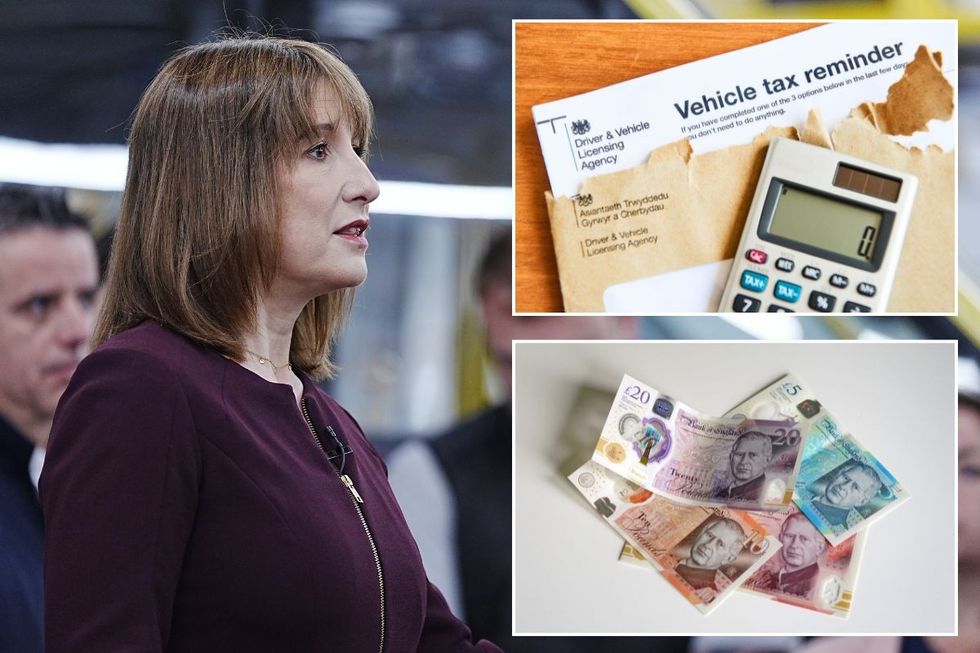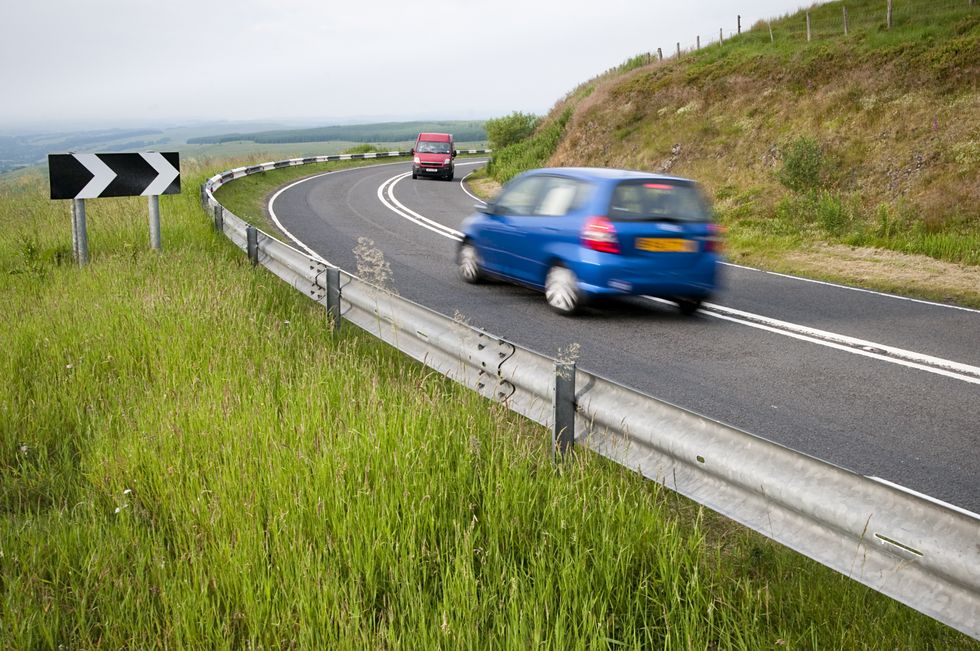Drivers continue to have concerns around rural drivers potentially paying more to travel under new car tax proposals
Don't Miss
Most Read
The vast majority of drivers have slammed proposals to introduce new pay-per-mile car tax changes as Chancellor Rachel Reeves and the Government look to fill a looming £35billion black hole.
With the rise of electric cars and vans, thousands of motorists are switching away from petrol and diesel vehicles every month, which could force the hand of the Government to introduce new rules.
Every time a driver visits the petrol station and fills up, 52.95p of the cost is taxed by the Government as fuel duty, and helps it raise around £35billion a year.
However, profits from fuel duty are already dwindling as more drivers make the transition to electric, with experts suggesting that a form of road pricing could be the solution.
Do you have a story you'd like to share? Get in touch by emailingmotoring@gbnews.uk

Drivers have voted overwhelmingly against the idea of introducing pay-per-mile car taxes
PA/GETTY
One of the most common suggestions includes charging drivers a certain amount of money for every mile they drive, to ensure those who use the roads most often pay for their upkeep.
While this has been touted as a potential solution to avoid a scenario where the Government loses £35billion every year, it has been met with mixed reviews from UK drivers.
A GB News poll of more than 1,500 readers found that only 14 per cent of motorists were in favour of introducing road pricing measures.
In comparison, a staggering 86 per cent rejected the idea, with commenters slamming proposals to charge car owners by the mile for the impact it would have on working people.
READ MORE: Rachel Reeves urged to introduce pay-per-mile car taxes for millions of British drivers
One commenter took aim at the proposals, saying it would be "another nail in the coffin" for Labour if the plans were to be adopted, while a potential Reform UK-led Government would "scrap it on hardship grounds for far too many of the population"
They added: "This is a plan being promoted by some fanatical net zero focus group who are quite content to see millions made poorer in the drive to foist upon us this flawed ideology."
This sentiment was echoed by other GB News readers, who claimed it would unfairly penalise individuals and small businesses, with one commenter describing it as a "shambles".
Another said: "Petrol and diesel drivers already pay per mile every time they fill up. The more fuel you use, the more fuel duty you pay. As for EVs, maybe add 'fuel duty' every time they charge up."
LATEST DEVELOPMENTS:
One commenter said they would consider accepting a pay-per-mile scheme if certain measures were put in place to protect rural motorists, since those in urban areas wouldn't need to drive as far to access amenities.
One reader noted that a round-trip to go shopping could involve travelling around 50 miles. Some experts, including AA President Edmund King, have suggested that those in rural areas could get an additional allowance of "free miles".
In suggested proposals, all motorists would be given 3,000 free miles before they have to start paying, while those in rural areas would get an extra 1,000 miles to account for the longer journeys they would need to make.
A spokesperson for HM Treasury previously told GB News before the last Autumn Budget that it had no plans to introduce road pricing.

Drivers in rural areas could be given 'free miles' in the event of road pricing being introduced
GETTYThey added: "We are committed to supporting our automotive sector as we transition to electric vehicles in order to meet our legally binding climate targets."
In the coming years, support for pay-per-mile could grow as the need for funding becomes more evident, as people turn away from petrol and diesel cars.
One of the UK's leading environmental organisations, Green Alliance, has suggested that a per-mile HGV levy could be introduced in line with European HGV charging models.
Forecasts suggest this would raise £1.5billion by the end of the decade, support the decarbonisation of heavier vehicles and "help to rebalance rail and road freight costs".






































